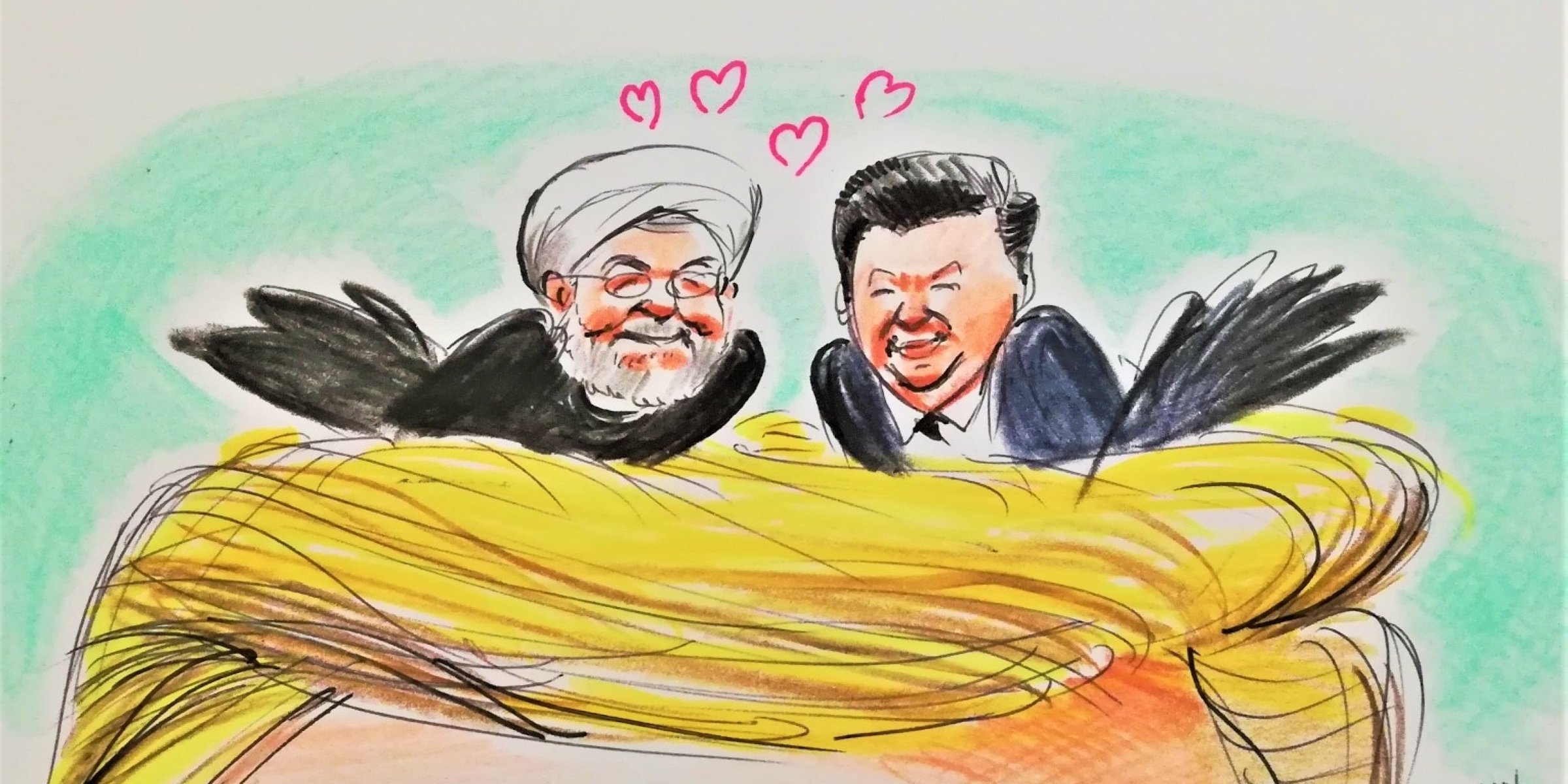China on Saturday backed Iran’s nuclear deal and called for a new Middle-East forum.
China is reiterating its support for Iran. China’s Foreign Minister, Wang Yi called for a new forum to defuse tensions in the Middle East after a meeting with his Iranian counterpart. According to the Chinese foreign ministry, Wang and Javid Zarif reaffirmed their commitment to Iran’s 2015 nuclear deal with world powers and expressed their sharp disapproval with the United States for abandoning the accord.
At the meeting in China’s southwestern Tengchong city, Wang said that the support for the Iranian nuclear deal, which was abandoned by US President Donald Trump, would be a precondition of entry to the forum. Also, the statement released by the Chinese foreign ministry, added that the forum would enhance mutual understanding between the two countries through dialogue and explore political and diplomatic solutions to security issues in the Middle East.
Iran calls on world to condemn US sanctions:
China’s support for Tehran comes after the US targeted Iran’s financial sector by announcing fresh sanctions on 18 major Iranian banks. The US State Department said that the new tranche of sanctions was aimed at choking off the funds used to carry out “its support for terrorist activities and nuclear extortion.” This move by the US government is going to have a huge impact on European banks as they risk losing access to the US market and financial system.
Iranian President Hassan Rouhani also called on the international community to condemn the Trump administration’s decision on imposing sanctions. It was also reported that Rouhani believed that this move by the US is against international law and regulation as well as it is inhumane as the move is coming at the time of the coronavirus pandemic.
Iran’s 2015 nuclear deal:
The Iran nuclear deal, formally known as the Joint Comprehensive Plan of Action, was sealed in July 2015, under President Barack Obama. The deal offered Tehran billions of dollars in sanctions relief in exchange for agreeing to curb its nuclear program. The agreement was aimed at ensuring that “Iran’s nuclear program will be exclusively peaceful.” In return, the deal helped in lifting UN Security Council and other sanctions, including in areas covering trade, technology, finance, and energy.
Iran signed the agreement with the five permanent members of the UN Security Council – the US, Russia, France, China and the United Kingdom as well as Germany, and the European Union.
The deal later attracted many controversies. Israeli Prime Minister Benjamin Netanyahu alleged that Iran lied about its nuclear weapon ambitions in the 2000s. Critics also allege that the deal itself is flawed and does not prevent Iran from engaging in aggressive actions that fall outside the pact’s purview, such as pursuing a ballistic missile program and expiration dates on some restrictions, as well as extending its influence throughout the region.
President Donald Trump also disliked the agreement and called it “the worst deal ever” during his campaign trail in 2016. On May 8, 2018, Trump announced the US would reimpose sanctions on Iran. Regional US allies, such as Saudi Arabia and Israel, were also vehemently against the agreement and believed that the agreement has not worked to curb Iran’s aggressiveness or ambitions.
The major reason behind the US abandoning the deal was that some of Iran’s policies in the Middle East run counter to US interests and those of its allies. Tehran threatens Israel, backs Hezbollah, a powerful Lebanese militia and political group, and is involved in conflicts in Yemen, Iraq, and Bahrain.
While on one hand, the US dismantled the deal from its side, other countries like France and Britain even called on Washington to stick to the deal.
Maintaining Relationship with Iran is a win-win for China:
Over the years, unremitting hostility between the US and the Islamic Republic of Iran has created opportunities as well as dilemmas for the People’s Republic of China. Beijing has sought many ways to exploit the rift between Washington and Tehran. The US pushed Iran into the arms of China with the withdrawal from the 2015 Iran nuclear deal. It is the first of its kind for Iran, keen on having a world power like China as its ally.
The ways in which China can benefit from maintaining a relationship with Iran:
1. Middle-east geopolitics:
For decades now, the US forces have dominated the Middle East’s security paradigm, but maintaining a relationship with Iran, China could now have a foothold in the region. China is planning to build several ports in Iran, one of them at Jask, just outside the Gulf of Hormuz, which is the entrance to the Persian Gulf.
The Gulf of Hormuz is among the nine key maritime chokepoints across the world. All of these chokepoints are controlled by the US, which many security analysts believe is a marker of US strategic hegemony over the world.
2. Oil:
The friendly relationship between Iran and China is sure to open the gates of oil for China. If the imports of China increase as far as crude oil is concerned Saudi Arabia is going to face more competition. With the bitter relationship between Iran and Saudi Arabia, China is more likely to benefit.

